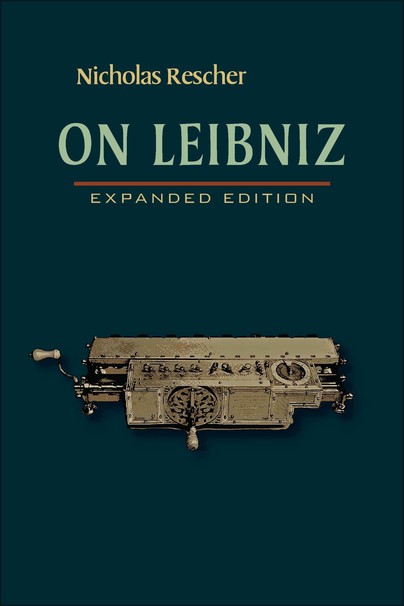On Leibniz (Paperback)
Expanded Edition
Imprint: University of Pittsburgh Press
Pages: 416
ISBN: 9780822962182
Published: 28th June 2013
Script Academic & Professional
Pages: 416
ISBN: 9780822962182
Published: 28th June 2013
Script Academic & Professional
This book will be reprinted and your order will be released in due course.
You'll be £49.00 closer to your next £10.00 credit when you purchase On Leibniz. What's this?
+£4.99 UK Delivery or free UK delivery if order is over £40
(click here for international delivery rates)
Need a currency converter? Check XE.com for live rates
(click here for international delivery rates)
Need a currency converter? Check XE.com for live rates
Contemporary philosopher John Searle has characterized Gottfried Wilhelm Leibniz (1646–1716) as \u201cthe most intelligent human being who has ever lived.\u201d The German philosopher, mathematician, and logician invented calculus (independently of Sir Isaac Newton), topology, determinants, binary arithmetic, symbolic logic, rational mechanics, and much more. His metaphysics bequeathed a set of problems and approaches that have influenced the course of Western philosophy from Kant in the eighteenth century until the present day.On Leibniz examines many aspects of Leibniz’s work and life. This expanded edition adds new chapters that explore Leibniz’s revolutionary deciphering machine; his theoretical interest in cryptography and its ties to algebra; his thoughts on eternal recurrence theory; his rebuttal of the thesis of improvability in the world and cosmos; and an overview of American scholarship on Leibniz.Other chapters reveal Leibniz as a substantial contributor to theories of knowledge. Discussions of his epistemology and methodology, its relationship to John Maynard Keynes and Talmudic scholarship, broaden the traditional view of Leibniz. Rescher also views Leibniz’s scholarly development and professional career in historical context. As a \u201cphilosopher courtier\u201d to the Hanoverian court, Leibniz was associated with the leading intellectuals and politicians of his era, including Spinoza, Huygens, Newton, Queen Sophie Charlotte, and Tsar Peter the Great.Rescher extrapolates the fundamentals of Leibniz’s ontology: the theory of possible worlds, the world’s contingency, space-time frameworks, and intermonadic relationships. In conclusion, Rescher positions Leibniz as a philosophical role model for today’s scholars. He argues that many current problems can be effectively addressed with principles of process philosophy inspired by Leibniz’s system of monadology.
Other titles in University of Pittsburgh Press...















